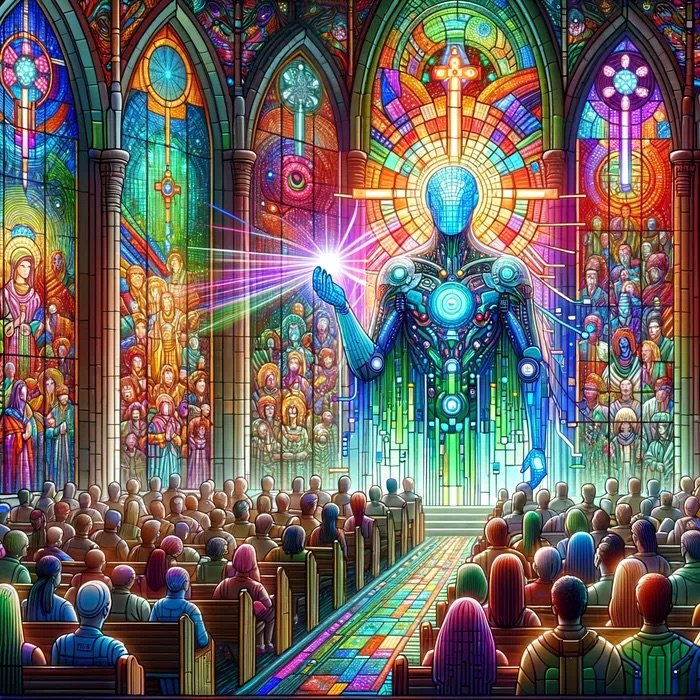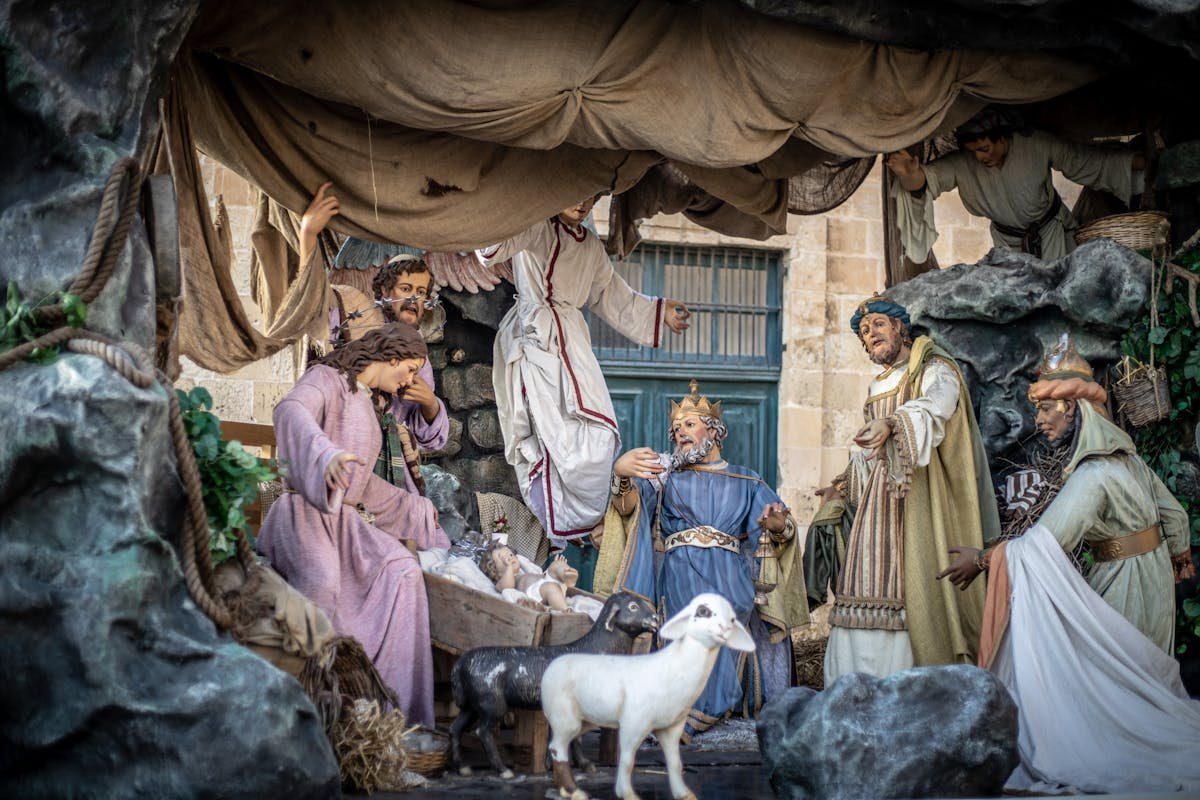In the early hours of January 1, 2024, I completed a lifelong dream: to run 24 hours nonstop. What a start to the year!
A few hours later, I was unable to bend my left knee. A few days later, I was in a hospital bed with a blood clot (TMI? Sorry).
It was not, as you could imagine, how I hoped to start the year.
But as I lay there in the hospital, I had a book with me. A companion to distract me, humor me, entertain, or otherwise engage me.
I’m not sure what your 2024 was like. Maybe it was full of finish lines. Maybe it was full of metaphorical clots. Whatever the last year held I hope you had the chance to read some good books along the way.
Whether the year was wonderful, the worst, or decidedly in between, I hope reading helped you get here. I know I wouldn’t be where I am today if it wasn’t for the books I’ve read, in 2024 or any other year.
And so, without further adieu, here are my top 24 books of 2024 (some new, some old), in the order I read them. Maybe you’ll find one of your next reads among them:
📖 The Longmire Defense, by Craig Johnson (2023) - I don’t read fiction all that much. And when I do, I’m picky. And the Longmire series from Craig Johnson continues to deliver. A crime thriller with grit and spirituality mixed in, I appreciate how nature plays such a distinct role in the series as well — letting the seasons of the planet, and life, have their due.
📖 Life After Doom: Wisdom and Courage for a World Falling Apart, by Brian McLaren (2024) - In this bracing study, theologian McLaren (Faith After Doubt) challenges readers to recognize “the dangerous future into which we are presently plunging ourselves, our descendants, and our fellow creatures.”
📖 Ian Fleming: The Complete Man, by Nicholas Shakespeare (2023) - I’m a Bond fan. I make no qualms about that. But what I enjoy most about the Bond œuvre is the ability for the films, books, and assorted other phenomena to be time capsules revealing the culture, sexual ethics, politics, and economics of the times they were produced in. The same goes for Ian Fleming, the man. Say what you want about “the man who would be Bond,” but his life is one we should reckon with in order to understand Britain in the 20th-century.
📖 For His Eyes Only: The Women of James Bond, by Lisa Funnell (2015) - Speaking of the Bond universe’s sexual and gendered ethics, enter one of the best books I’ve read on the subject. Funnell, as her podcast declares, is “licensed to critique.” And critique she does. A phenomenal anthology on femininity and feminism in the Bond series.
📖 Righting the American Dream, by Diane Winston (2023) - A provocative new history of how the news media facilitated the Reagan Revolution and the rise of the religious Right. Read more HERE.
📖 Wir Kinder vom Bahnhof Zoo, by Christiane F. (1978) - Still as haunting and hard-hitting as it was over 50 years ago. No glitz and glam here. This is a descent into the depths of human nature and misery. A poignant reminder that we are all just a few steps away from a life on the streets.
📖 Diesseits der Mauer: Eine Neue Geschichte der DDR, Katja Hoyer (2023) - A controversial history of the DDR, but one I thoroughly appreciated. Living in the former East, I appreciated the perspective shift this book presented on the history of Germany post World War II.
📖 Strangers No Longer: Latino Belonging and Faith in Twentieth-century Wisconsin, by Sergio M. González (2024) - I read a lot of books about immigration this last year. This one stood out for its focus on local history and the minutiae of how ministries in the Badger State accepted, expanded, and adapted because of an influx of Latino immigrants in the 20th-century.
📖 The Other Americans, by Laila Lalami (2019) - Staying on the topic of immigration, this is a telling tale of belonging and “Other”-hate in California’s High Desert. Lalami rarely takes a misstep with her works and this one is no different.
📖 The Bible: A Global History, by Bruce Gordon (2024) - An ambitious study of how a collection of prophecies, poems, and letters became a sacred text that has shaped cultures across time and space.
📖 The Unclaimed: Abandonment and Hope in the City of Angels, by Pamela J. Prickett and Stefan Timmermans (2024) - If I ranked my favorite books in 2024, this one would be at the top of the list. A touching ethnography of death and dying in the wicked city of Los Angeles. I listened to this book while walking the streets of Venice Beach and Skid Row, Culver City and Hollywood. Every word resonated with what I saw. And while there is beauty and hope to be found, most of it was harrowing. A must read on the ethics of care in 21st-century America.
📖 Everything Now: Lessons from the City-state of Los Angeles, by Rosecrans Baldwin (2021) - For all the critique of this scattershot portrayal of the “city-state” Los Angeles, I loved Baldwin’s take on the megalopolis and its many sides. In particular, I thought the chapter on those in pursuit of Hollywood’s dream both textured and compassionately critical.
📖 The Lincoln Lawyer, by Michael Connelly (2005) - I said I don’t read much fiction. And yet, this is my third fiction book on the list. Set in Los Angeles, this is the first in “The Lincoln Lawyer” series. I’m hooked and already started book two: The Brass Verdict.
📖 Our Migrant Souls, by Héctor Tobar (2023) - I had the opportunity to hear Héctor Tobar when he accepted the Zócalo Book Prize for this book in 2024. As he said that night, there are whole aspects of the Latino experience not yet encountered by the American masses. This book goes a long way in sharing those stories with poetic and powerful prose narratives of Latinx experience in the U.S.
📖 Meditations for Mortals: Four Weeks to Embrace Your Limitations and Make Time for What Counts, by Oliver Burkeman (2024) - “Your limitations aren’t obstacles to a meaningful existence”—they’re key to building one, according to this refreshing guide from journalist Burkeman. Amid a sea of efficiency-focused, do-it-all self-help guides, this is a welcome alternative.
📖 Puerto Rico: A National History, by Jorell A. Meléndez Badillo (2024) - Ever since I read Fernando Pico’s 2006 History of Puerto Rico: A Panorama of Its People, I was looking for the next history of Borinquen to come along. This not only provides the necessary updates, but goes beyond, abandoning “great man” approaches to the nation’s history in favor of telling the story of its people, from the people themselves.
📖 Floss, by Roger Erickson (2024) - Erickson, who in 2003 became the first Black photographer to shoot the cover of Vogue, serves up an eye-popping debut collection full of artists, celebrities, and musicians. Hip-hop fans will take special delight in this vibrant celebration of American pop culture.
📖 Berlin Calling, by Paul Hockenos (2017) - On the theme of music, this book captures the spirit of punk in Berlin, expertly surveying the landscape out of which its leading luminaries and most radical expressions emerged. Next up on the list: Der Klang der Familie: Berlin, Techno, and the Fall of the Wall.
📖 Borders: A Very Short Introduction, by Alexander C. Diener and Joshua Hagen (2024) - This has become one of the two books I assign to students when we start talking about borders (the other being Glorida Anzaldúa’s Borderlands/La Frontera). A handy introduction to our bordered world and how, while borders are make believe, they remain very, very real.
📖 A Few Words in Defense of Our Country: The Biography of Randy Newman, by Robert Hilburn (2024) - Biographer Hilburn (Paul Simon) serves up an affectionate tribute to Randy Newman, the singer-songwriter and film score composer best known for “I Love L.A.” and “You’ve Got a Friend in Me.” Throughout, Hilburn astutely analyzes how Newman uses literary devices like the unreliable narrator to probe the absurdities of “a strange and tragic period in [America’s] history.” In the process, Hilburn makes clear, Newman broadened the boundaries of what pop music can do.
📖 Islamic Thought Through Protestant Eyes, by Mehmet Karabela (2021) - A thorough exploration of how (mostly) German Lutherans engaged with Islamic thought and helped give shape to Protestant identity in the wake of the Reformation. Karabela testifies to the ways in which the “strange” is not only more “familiar” than we at first might think but has played a role in the evolution of our own thought and practice.
📖 Searching for Jimmie Strother, by Gregg D. Kimball (2024) - In this thoroughly researched forensic biography, Kimball pieces together the life of James Lee Strother: a blind singer, guitarist and banjoist found at the Virginia State Prison Farm on a 1936 expedition by folklorist John Avery Lomax on behalf of the Library of Congress’s folk song archive. A fine-tuned, and rich retelling of a life too long lingering in the shadows of American folk history.
📖 Life Worth Living, by Matthew Croasmun, Miroslav Volf, and Ryan McAnnally-Linz (2023) - Welcome to the humanities! An excellent little primer on how to approach “the Question” of all our lives (and the many questions that come with it): what is really worth wanting?
📖 The Muslims of Caricom, by Sabir Nakhuda (2019) - As I write this, I am in Barbados conducting research with the Muslim community on the island. Nakhuda’s thoroughly researched oral histories are a gift to me and others who want to learn more about the vibrancy of Muslim life in a part of the world we rarely associate with global Islam.
























